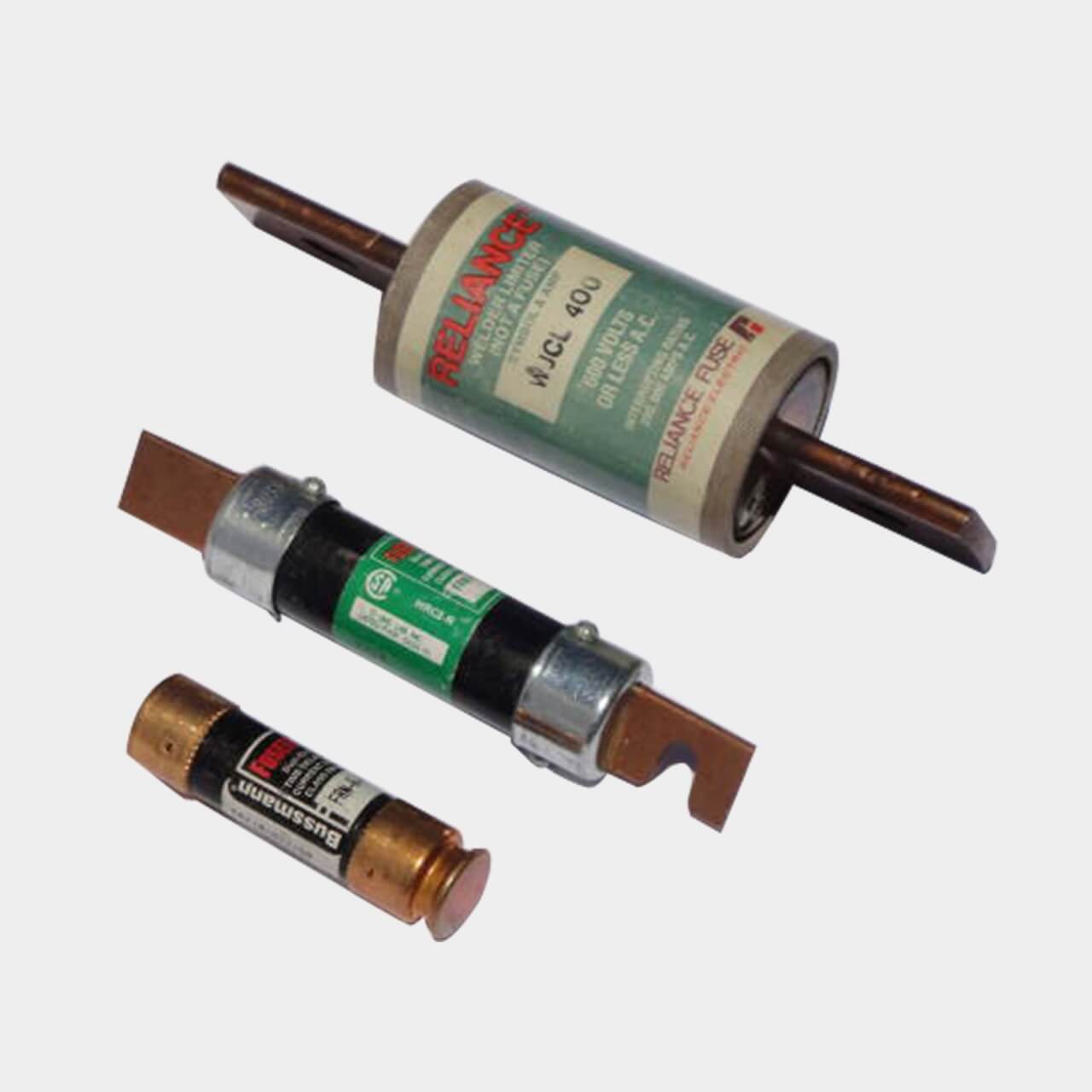
Your electrical system’s first line of defense and distribution.
Circuit breakers and fuses are some of the most important and most common pieces of electrical hardware. While they are both automatic safety devices that detect short circuits and overloads, halt the current, and protect the circuit from damage, most of the time fuses (UL-248, IEC 60269) need to be completely replaced after a short circuit/overload. Fuses are used to protect circuits in a number of applications including motor circuits, lighting circuits, electrical distribution circuits, heating systems, and more.
The working principle of a fuse depends on a small wire or metal strip between 2 electrical terminals that melts when it detects an overload. This then cuts off the current, and since in most cases that small wire cannot be repaired, the entire fuse needs to be replaced.
Choosing your fuse.
Used across almost every application and sector that requires electricity, including residential, commercial, industrial, automotive, and marine, current ratings for fuses range anywhere from 15A to as high as 10,000A in heavy duty applications. Other specifications to consider in a fuse are breaking capacity, rated voltage, and class. Further, different classes of fuses have different properties. For example, Class CC fuses are current limiting that have rejection tips on the bottom, while Class H fuses are a one-time use fuse that are non-current limiting, and Class T fuses are only available as a fast acting fuse.
Buy fuses with confidence.
Wondering where to buy fuses? Wonder no more, thanks to Bay Power’s extensive inventory. We proudly carry a wide variety of both new and reconditioned fuses from Bussmann, one of the industry’s top manufacturers. Whether you’re looking for a 30 amp or a 250 amp, a Class CC or a Class RK5, a low voltage fuse or a high voltage fuse, you don’t need to look any further than Bay Power.
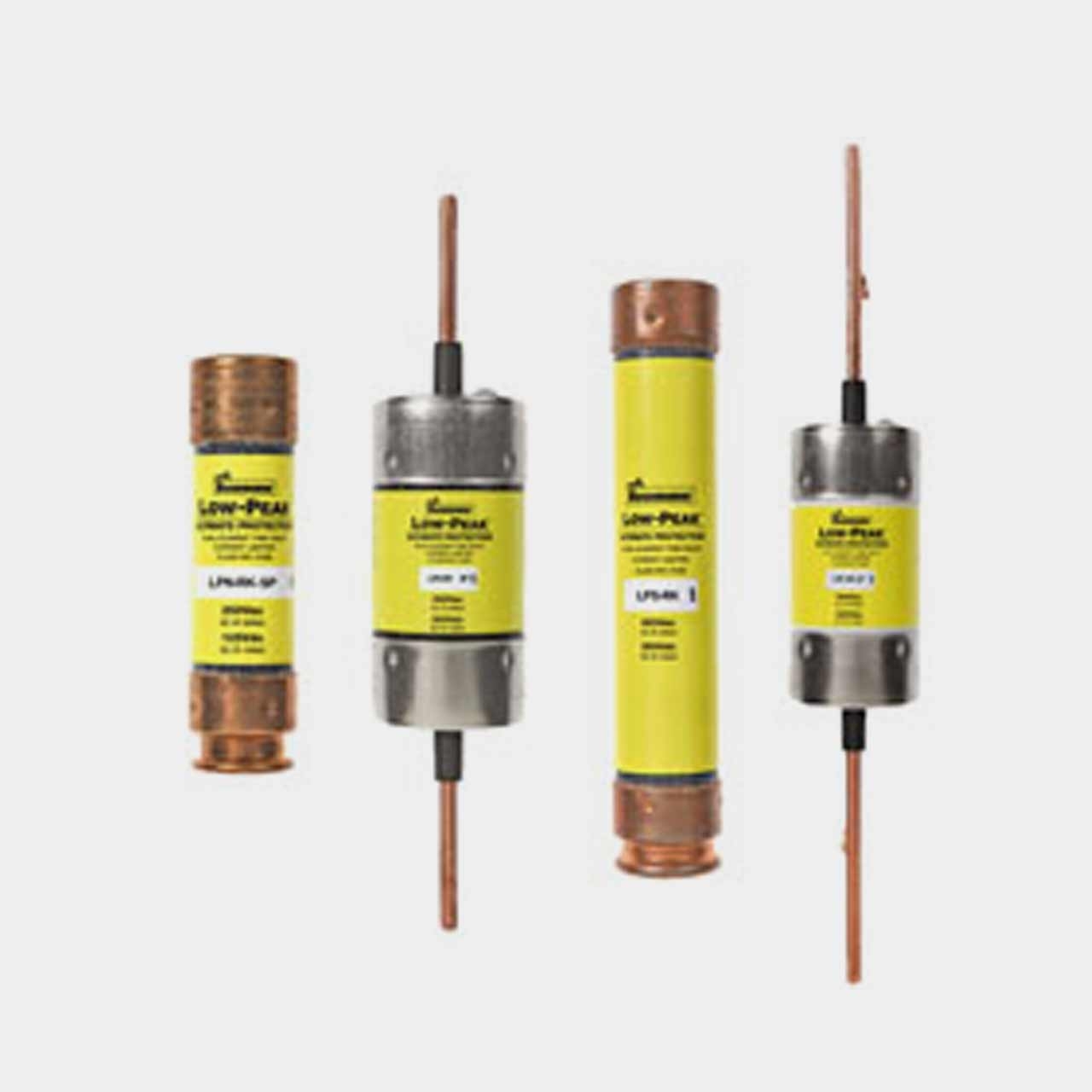
Low Voltage Fuses
Low voltage fuses are rated at less than 1,500V. They can be either time delayed or fast acting. Available across a number of fuse classes, low voltage fuses are used to protect circuits across a number of applications including panelboards, apartment complexes, switchboards, AC drives, DC drives, and motor circuits.

Medium Voltage Fuses
Medium voltage fuses have voltage ratings between 1 kV and 1000 kV. They are available in a much larger selection of voltage ratings, whereas low voltage fuses are typically only available as either 250V or 600V. Medium voltage fuses are ruggedly built to withstand the demands of medium voltage applications, but are only meant to protect against short circuits, not overloads.
High Voltage Fuses
Used in high voltage switchgear, high voltage fuses carry voltage ratings exceeding 10,000V. HV fuses can be current limiting (backup or general purpose) or non-current limiting (expulsion fuses). One of the most common types of HV fuse is the high voltage HRC fuse which uses a special type of mechanism and materials to interrupt large currents.
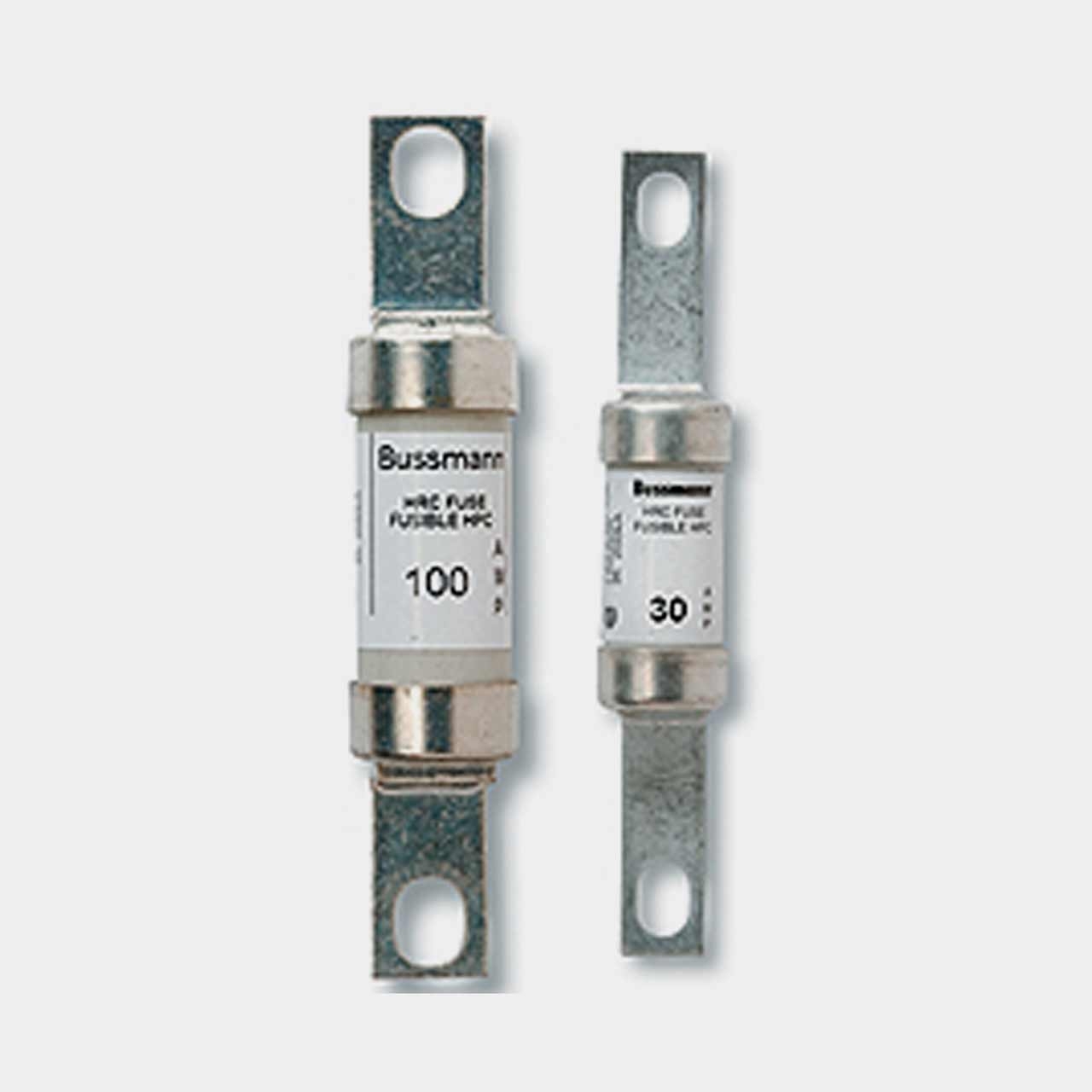
Current Limiting Fuses
A current limiting fuse uses a high level of resistance when the fuse element has melted during an overload. They can typically be categorized into one of the following three types: backup, general purpose, or full range fuses. Current limiting fuses are available across a wide variety of classes and are commonly used to protect transformer circuits and feeder circuits. Popular voltage ratings include 250V and 600V.
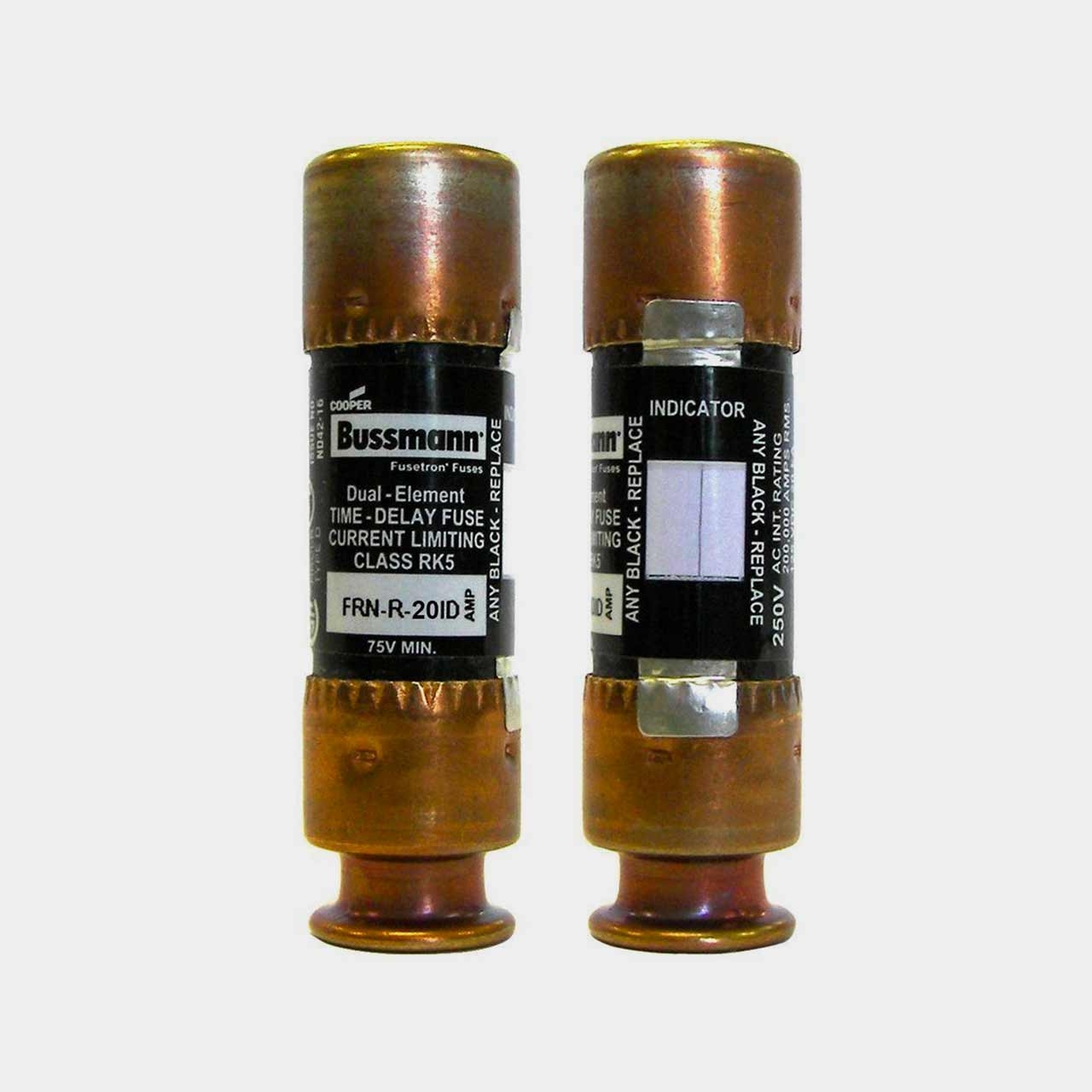
Dual Element Fuses
Though physically small, dual element fuses are high performance fuses. They are a popular choice for motor circuits as they are able to withstand the temporary overloads associated with motors. Dual element fuses also have the advantage of being sized significantly closer to the motor load, where a single element fuse would need to be sized up to 3x the motor load to accommodate these temporary surges. All dual element fuses are time delay fuses.
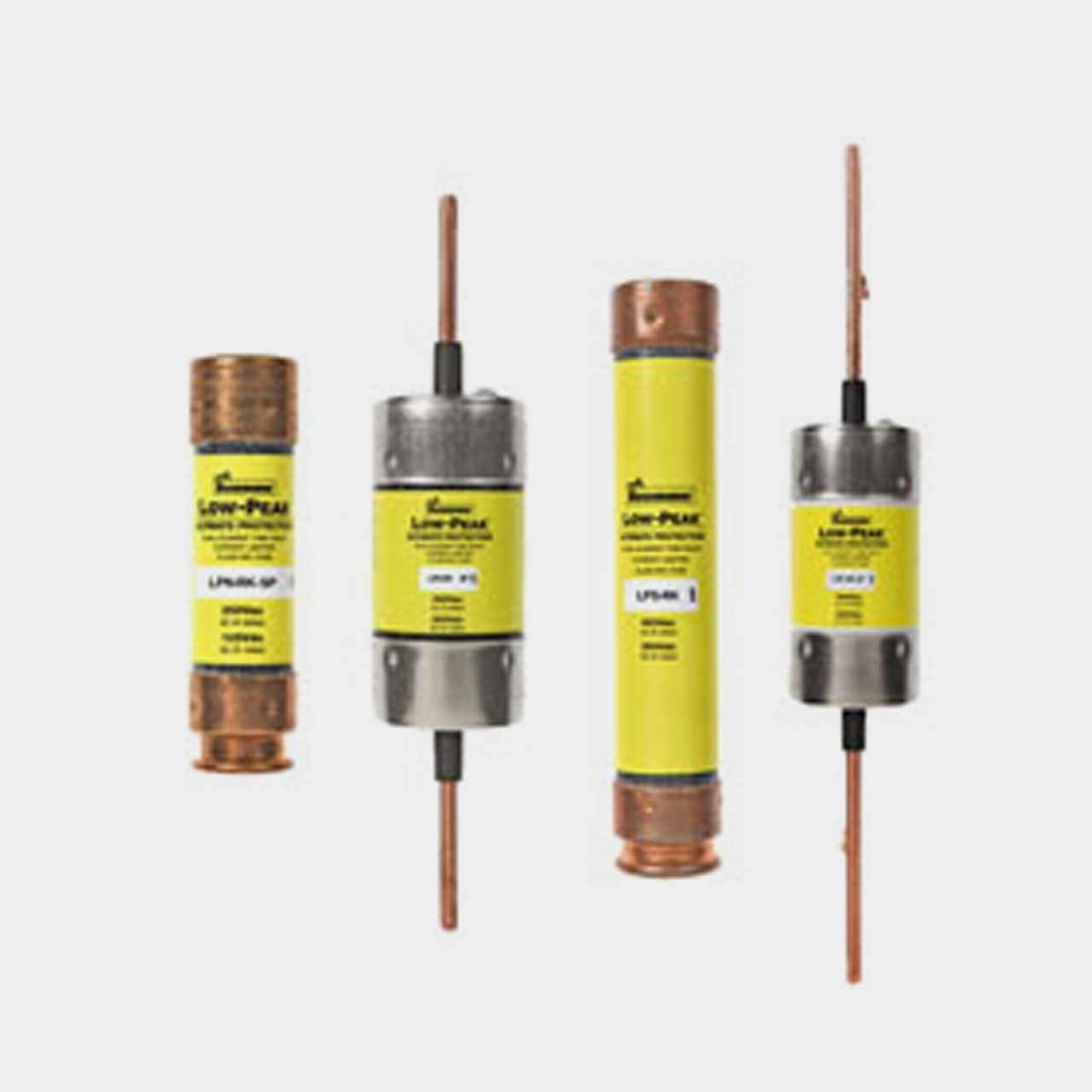
Time Delay Fuses
While all dual element fuses are time delay fuses, not all time delay fuses are dual element fuses. Time delay fuses allow for a temporary power surge without blowing or melting the element. They share many of the same characteristics as dual element fuses and are also used for the protection of motor circuits.
Class CC Fuses
Class CC fuses are dual element, current limiting fuses with current ratings up to 30A. They carry a 600V rating and are available as either fast acting or time delay versions. They have 200,000A interrupting rating, and they are also the smallest 600V fuse with this interrupting rating. They are also outfitted with rejection tips. Common uses include motor circuits, branch circuits, and relay circuits.
Class H Fuses
As a non-current limiting fuse, the only trip after about one and a half cycles. Available as a 250V fuse or a 600V fuse, Class H fuses are generally used for lighter duty and general purpose applications. Class H fuses are available in both renewable and nonrenewable versions and are commonly used in commercial and industrial applications that are prone to short circuits and overloads.
Class J Fuses
A Class J fuse is a high performance, 600V fuse. Used for motor circuits, transformer circuits, and lighting circuits, Class J fuses are commonly used in commercial and industrial applications that require extremely high current limiting capabilities. Current ratings range from 1A to 600A. They also take up much less space than its close relative, the Class R fuse.
Class L Fuses
Class L fuses are nonrenewable fuses that carry current ratings between 60A AND 6000A. These 600V fuses are commonly used to protect both AC and DC circuits, lighting loads, feeders, and service entrance equipment but as especially popular for motor and transformer loads. These are high performance fuses and are available as either time delay fuses or fast acting fuses.
Class RK1 Fuses
As a type of Class R fuse, Class RK1 fuses are rejection fuses which means they are built with rejection tips that prevent improper installation into the wrong fuse holders. Class RK1 fuses are current limiting fuses and are used to protect circuits in power distribution, branch circuits, motor applications, and more. They are a close relative of the Class RK5 fuse.
Class RK5 Fuses
Class RK5 fuses are another type of rejection fuse. They can be either a 250V fuse or a 600V fuse, with current ratings up to 600A. Common applications for Class RK5 fuses include AC power distribution mains, power panelboards, combination starters and more. They are dual element, current limiting fuses and are nonrenewable.
Class T Fuses
Class T fuses are similar to Class R fuses as they are also rejection fuses, however they are only available as fast acting fuses with either a 300V or a 600V voltage rating. Class T fuses can only protect against short circuits, not overloads. Often used to protect general purpose circuits and non-inductive loads, they are a popular choice for panelboard and load centers due to their small size and high current ratings (up to 1200A).
Marine Fuse Blocks
Built to withstand the particular demands of the marine industry and life at sea, marine fuse blocks have interruption ratings of up to 10,000A, with currents ratings ranging anywhere from 30A to 300A. They are a small fuse and designed to be installed in the small spaces of marine vessels. Common uses include power control, alternator outputs, starter motor inputs, switching, and accessory circuits.
Request a Quote
Please fill in the following information or contact us at (800) 699-2980 to request a free quote. Our friendly sales staff would be glad to assist you!
Popular Types & Configurations
-
Browse By Configuration
- Low Voltage Fuses
- Medium Voltage Fuses
- High Voltage Fuses
- Current Limiting Fuses
- Dual Element Fuses
- Time Delay Fuses
- Class CC Fuses
- Class H Fuses
- Class J Fuses
- Class L Fuses
- Class RK1 Fuses
- Class RK5 Fuses
- Class T Fuses
- Marine Fuse Blocks
- 30 Amp Fuses
- 50 Amp Fuses
- 100 Amp Fuses
- 200 Amp Fuses
- 250 Amp Fuses
